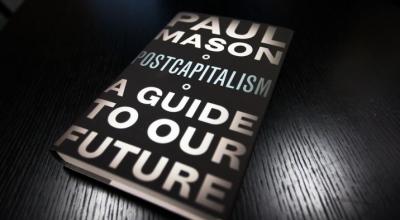Book review: A glimpse into the future of capitalism

ROME- I must declare an interest. Paul Mason recommends the reduction of intellectual property rights which aroused my suspicion as they enable me to eke out a living. That is part of his utopic vision of a post-capitalist society where mankind will live a collaborative life with an abundance of goods and work will merge with play.
Mason, economics editor of the UK Channel 4 News, maintains that mankind is on the threshold of a transformation of capitalism into something altogether different. This transformation will be achieved by information technology which, he claims, inevitably undermines an economy based on markets and private ownership as is already happening in certain spheres.
In his view, each phase of capitalism from the 1770s has tried to downgrade the workers but they resisted successfully which resulted in technological innovations to ensure progress. In the present phase, however, the workers or trade unions have been defeated and the proletariat has turned into a precariat. But the resistance is coming from a different source – networked individuals who want a juster society and cannot be controlled.
Mason sees the outlines of a new economic order in factors such as Wikipedia, food sharing and other cooperative ventures. But he says a new awareness and project is needed to help the new to emerge over a long transitional period during which mankind will be threatened by climate change, a disproportionately old population, massive migration and a warped financial system.
He applauds internet-inspired protest movements such as that of Geiza Park, Istanbul, but the Middle Eastern Spring did not produce effective political action except in Tunisia. He is an admirer of the Greek Syriza Party but it did not obtain better conditions for Greeks than had already been on offer.
He claims it should be possible to foresee what would happen ‘if you reduce the price of Nike trainers to a point between their present $190 and their production price, which is likely to be lower than $20.” Then ‘we would ask our supercomputer lateral questions such as :do young men get depressed because the Nike brand dies?”
Finally he says “we might decide keeping the price of Nike trainers high is a good thing. Or not.”
What worries me is the ‘We.’ Mason does not clarify how political decisions will be reached. He writes as if looking forward to a society of Smilies happy with their play stations but I think this does not take account of mankind’s need of politics and capacity for mischief.
But then, as I warned, I am prejudiced. Obviously society is faced with grave problems in many spheres. Information technology could help but having seen what it has done to newspapers and book publishing, I am not as sanguine as Mason. But he provides a wide- ranging examination of capitalism, its problems and its problematic future.
PostCapitalism
Paul Mason
Allen Lane £16.99 in uk


